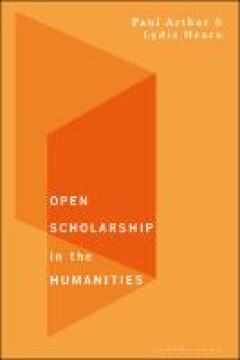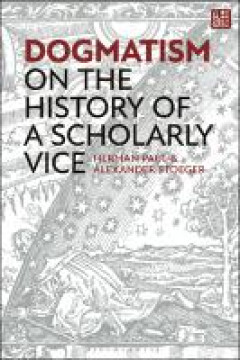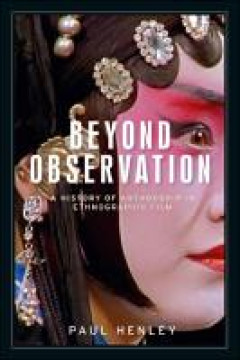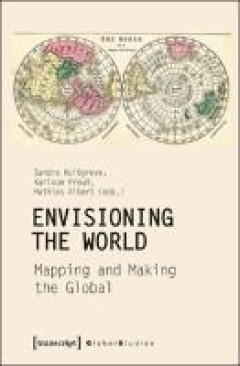Ditapis dengan
E-book History of English Literature
Little indeed is known of the origin of English Literature, though it is reasonable to assume that verse of an extemporary kind was composed long before the period of the earliest written records and that we can be certain that poetry made its appearance long before the first prose was written down. It is important from the outset to remember that the extant remains of Old English Literature ha…
- Edisi
- 5th ed.
- ISBN/ISSN
- 0195612248
- Deskripsi Fisik
- 726 hlm
- Judul Seri
- -
- No. Panggil
- 829 ALB h
E-book Lessons in Perception : The Avant-Garde Filmmaker as Practical Psychol…
Existing fi lm scholarship that draws from the fi eld of cognitive science has char-acterized commercial fi lmmakers as practical psychologists, who are experts at shaping our senses and ‘preying (usually in a good sense) on our habits of mind in order to produce experiences’ (Bordwell 2011). A skilled fi lmmaker will elicit emotional responses, draw the viewer’s attention to the appropri…
- Edisi
- -
- ISBN/ISSN
- 9781785336423
- Deskripsi Fisik
- 228 hlm
- Judul Seri
- -
- No. Panggil
- 791.4375 TAB l

E-Book Open Scholarship in the Humanities
Exploring the rise of open scholarship in the digital era and its transformational impact on how knowledge is created, shared, and accessed, this open access book offers new insights on the history, development, and future directions of openness in the humanities and identifies key drivers, opportunities, and challenges. The concept of open research is reconfiguring scholarly communication acro…
- Edisi
- -
- ISBN/ISSN
- 9781350232280
- Deskripsi Fisik
- 155 halaman
- Judul Seri
- -
- No. Panggil
- 371 ART o

E-Book Dogmatism: On the History of a Scholarly Vice
Why does the history of dogmatism deserve our attention? This open access book analyses uses of the term, following dogmatism from Victorian Britain to Cold War America, examining why it came to be regarded as a vice, and how understandings of its meaning have evolved. Whilst the field of scientific thought is committed to continuous innovation, ideas about dogmatism – with their roots in anc…
- Edisi
- -
- ISBN/ISSN
- 9781350399570
- Deskripsi Fisik
- 115 halaman
- Judul Seri
- -
- No. Panggil
- 901 PAU d
E-book Fundamentals of Cheese Science
It is believed that cheese evolved in the ‘Fertile Crescent’ between the Tigris and Euphratres rivers, in Iraq, some 8000 years ago during the “Agricultural Revolution”, when certain plants and animals were domesticated. Among the earliest animals domesticated were goats and sheep; being small, gregarious and easily herded, these were used to supply meat, milk, hides and wool. Cattle we…
- Edisi
- -
- ISBN/ISSN
- 9781489976819
- Deskripsi Fisik
- 803 hlm
- Judul Seri
- -
- No. Panggil
- 663 FOX f

E-Book Beyond Observation: A History of Authorship in Ethnographic Film
This book analyses the authoring of ethnographic films between 1895 and 2015. It is based on the general argument that the ethnographicness of a film should not be gauged according to whether it is about an exotic culture, but rather by the degree to which it conforms to the norms of ethnographic practice more generally. On these grounds, it considers films made in a broad range of styles, on a…
- Edisi
- -
- ISBN/ISSN
- 9781526147295
- Deskripsi Fisik
- 563 halaman
- Judul Seri
- -
- No. Panggil
- 305.8 HEN b
E-book Snowboard Manual : Your Guide to Teaching & Riding from Beginner to Ad…
Snowboarding is addictive! If youre reading this, its highly likely that you're aware of this already and know first-hand how addictive snowboarding can be. You may even be an addict yourself. For many, the addiction to snowboarding begins the first time they slide down a snow-covered hill sideways, linking their first turns. This can occur within hours of picking up a snowboard, or it can take…
- Edisi
- -
- ISBN/ISSN
- -
- Deskripsi Fisik
- 342 hlm
- Judul Seri
- -
- No. Panggil
- 796.9 PHI s
E-book Handbook of Fish Biology and Fisheries
According to the United Nations Food and Agricultural Organization (FAO), there was a steady increase of fish catches until the middle of the 1990s when the catch began to level off (Fig. 1.1). Recent work by Watson and Pauly (2001) has shown that in reality the total marine catch of fish has been declining by some 10% a year since 1988. The apparent continued increase until the mid1990s was du…
- Edisi
- Vol. 1
- ISBN/ISSN
- 0632054123
- Deskripsi Fisik
- 420
- Judul Seri
- -
- No. Panggil
- 597 HAR h

E-Book 50 Years World Heritage Convention: Shared Responsibility – Conflict…
This open access book identifies various forms of heritage destruction and analyses their causes. It proposes strategies for avoiding and solving conflicts, based on integrating heritage into the 2030 Agenda for Sustainable Development. It reflects on the identity-building role of heritage, on multidimensional conflicts and the destruction of heritage, and considers conflict-solving strategies …
- Edisi
- -
- ISBN/ISSN
- 9783031056604
- Deskripsi Fisik
- 2022
- Judul Seri
- -
- No. Panggil
- 306.4 ALB f

E-Book Envisioning the World: Mapping and Making the Global
The "global" is permanently made and remade by how it is envisioned in political projects, in language, and in literature. Through a range of case studies, this book shows how practices of referring to the world actually constitute the global in its many facets. It aims to provide a sense in readers of how the global is not something »out there«, but that it is embedded in a wide range of the…
- Edisi
- -
- ISBN/ISSN
- 9783839455296
- Deskripsi Fisik
- 264 halaman
- Judul Seri
- -
- No. Panggil
- 301 HOL e
 Karya Umum
Karya Umum  Filsafat
Filsafat  Agama
Agama  Ilmu-ilmu Sosial
Ilmu-ilmu Sosial  Bahasa
Bahasa  Ilmu-ilmu Murni
Ilmu-ilmu Murni  Ilmu-ilmu Terapan
Ilmu-ilmu Terapan  Kesenian, Hiburan, dan Olahraga
Kesenian, Hiburan, dan Olahraga  Kesusastraan
Kesusastraan  Geografi dan Sejarah
Geografi dan Sejarah